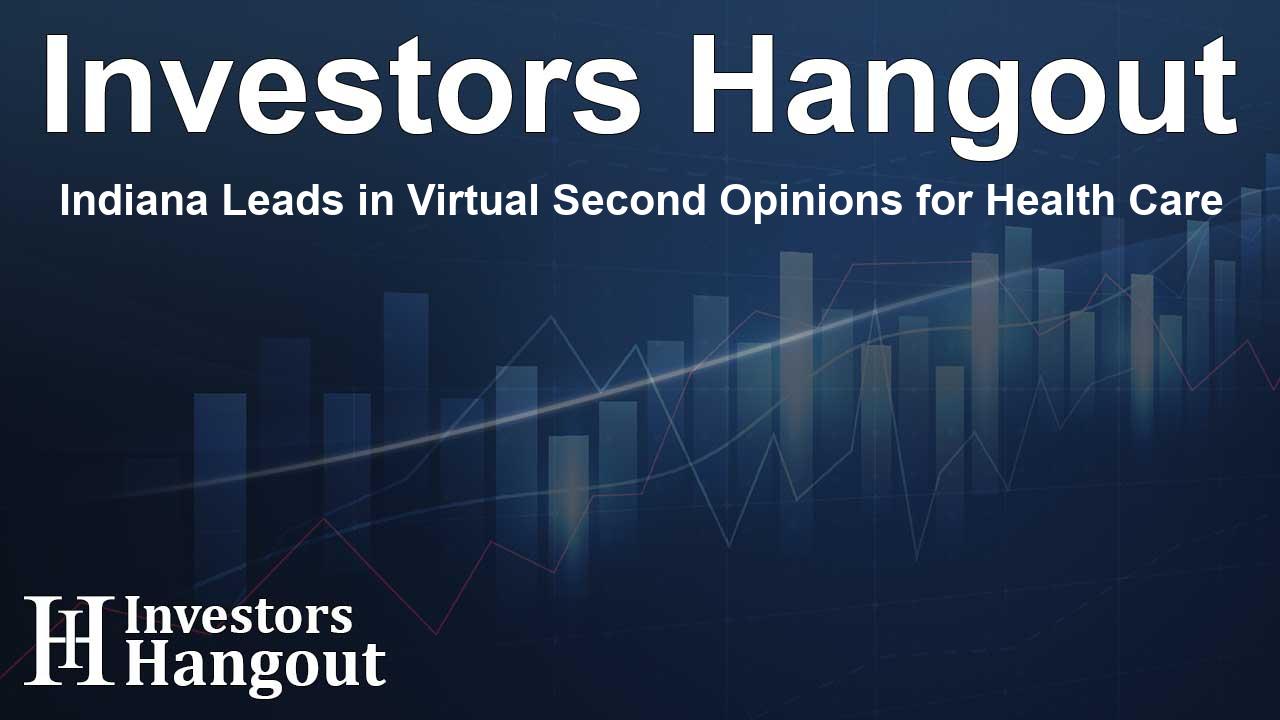Indiana Leads in Virtual Second Opinions for Health Care

Increasing Demand for Virtual Second Opinions in Indiana
Recent findings indicate that residents in Indiana are increasingly seeking virtual second opinions (VSOs) at a rate significantly higher than those in other states. This surge reflects a growing awareness of the benefits of telehealth services among the population, particularly in relation to serious medical conditions like cancer.
Statistics You Need to Know
According to recent data from a reputable provider of VSOs, Indiana has shown remarkable engagement in health care solutions that bridge the gap between patients and top-tier medical expertise. Notably, nearly one in five of their total cases has emerged from Indiana residents. It's fascinating to note that over half of these VSOs are specifically related to cancer, with 55% of consultations focusing on this serious health challenge. The increased case volume in Indiana can largely be attributed to partnerships between health plans in the Midwest, which cover costs associated with cancer-related VSOs and more for their members.
The Benefits of Coverage
Frank McGillin, the CEO of the Clinic behind these VSOs, highlights an essential dynamic: when residents are informed about VSOs and their health plans offer these as covered benefits, their likelihood of utilizing the services increases significantly. The stark reality is that cancer remains a predominant, cost-driven concern for employers, while the onset of acute cases places an ever-growing demand on oncology specialists.
Connecting Patients with Experts
Innovative solutions like VSOs are crucial, as they allow patients to engage with world-renowned clinicians without the added stress of traveling to distant medical facilities. This not only improves health outcomes but also transforms patient experiences by making access to quality care much more convenient and financially savvy. By avoiding unnecessary hospitalizations, patients can achieve significant savings—approximately $8,705 on average per individual.
Addressing Access to Care
Data also underlines that patients are far more inclined to seek second opinions when their employers provide coverage for such services. Despite the overwhelming realization that obtaining a second opinion can be vital—71% of respondents with serious health conditions consider it—only 50% actually act on this thought due to perceived barriers like cost and a lack of local specialists.
Responding to Complex Health Needs
As highlighted by Steven C. Campbell, a urologic oncologist, cancer treatment involves navigating numerous options tailored to individual patient circumstances. Virtual second opinions serve as a beneficial bridge for patients needing reassurance or looking to pivot their treatment approaches. The satisfaction derived from guiding patients towards effective treatment plans reinforces the impact of VSOs.
Transformative Outcomes Supported by Data
Analysis of VSOs reveals that about 67% of such consultations lead to alternative diagnosis or treatment recommendations. Notably, 85% of the interactions suggest less invasive options than surgery, and 62% lead to reduced hospitalization rates compared to initial diagnoses. This evidence underscores the value of virtual consultations in modern healthcare, enhancing patient confidence and leading to better health management.
About The Clinic by Cleveland Clinic
Year after year, countless Americans face challenging health diagnoses, which often necessitate difficult choices regarding their treatment options. The Clinic by Cleveland Clinic was established specifically to assist individuals in moments like these. Located at the intersection of cutting-edge technology and unparalleled medical knowledge, the Clinic is a collaboration between Cleveland Clinic and Amwell. Utilizing advanced connectivity solutions, it opens doors to a wealth of expertise from over 3,500 physicians in various medical specialties.
Frequently Asked Questions
What are virtual second opinions (VSOs)?
VSOs are consultations with specialized healthcare professionals conducted through secure video technology, allowing patients to receive insights without needing to visit in person.
Why are Hoosiers seeking VSOs at a higher rate?
Increased awareness and partnerships between health plans that cover VSOs are driving the higher engagement in Indiana compared to other states.
How can VSOs save patients money?
Patients can avoid unnecessary surgeries and hospitalizations through VSOs, resulting in significant savings on medical costs.
What role do employers play in the use of VSOs?
When employers cover the cost of VSOs, patients are far more likely to utilize the service, enhancing access to crucial second opinions.
What is the process to obtain a virtual second opinion?
Patients can initiate the process online through authorized clinics that provide guidance and schedule consultations with specialists.
About Investors Hangout
Investors Hangout is a leading online stock forum for financial discussion and learning, offering a wide range of free tools and resources. It draws in traders of all levels, who exchange market knowledge, investigate trading tactics, and keep an eye on industry developments in real time. Featuring financial articles, stock message boards, quotes, charts, company profiles, and live news updates. Through cooperative learning and a wealth of informational resources, it helps users from novices creating their first portfolios to experts honing their techniques. Join Investors Hangout today: https://investorshangout.com/
Disclaimer: The content of this article is solely for general informational purposes only; it does not represent legal, financial, or investment advice. Investors Hangout does not offer financial advice; the author is not a licensed financial advisor. Consult a qualified advisor before making any financial or investment decisions based on this article. The author's interpretation of publicly available data shapes the opinions presented here; as a result, they should not be taken as advice to purchase, sell, or hold any securities mentioned or any other investments. The author does not guarantee the accuracy, completeness, or timeliness of any material, providing it "as is." Information and market conditions may change; past performance is not indicative of future outcomes. If any of the material offered here is inaccurate, please contact us for corrections.